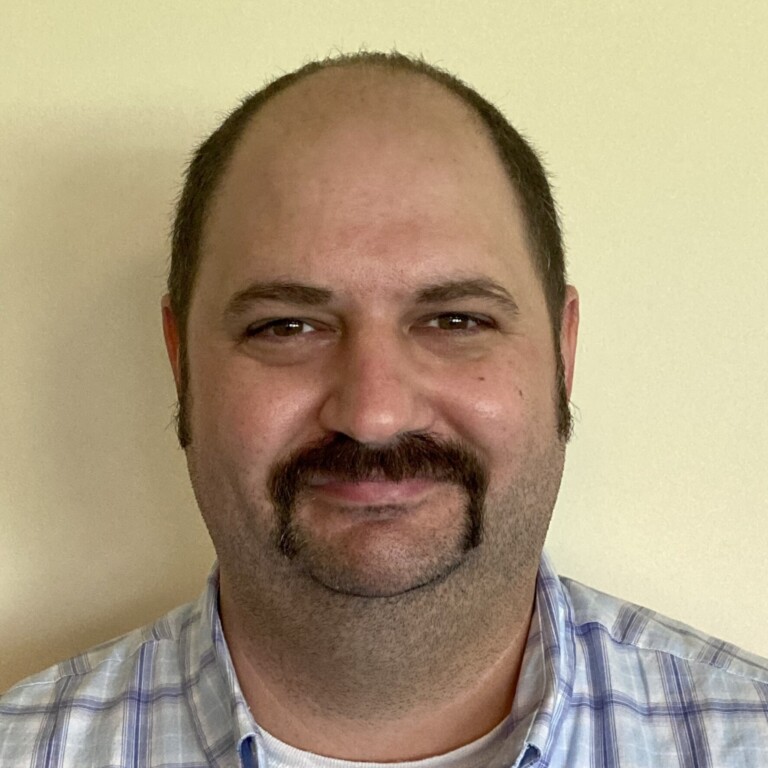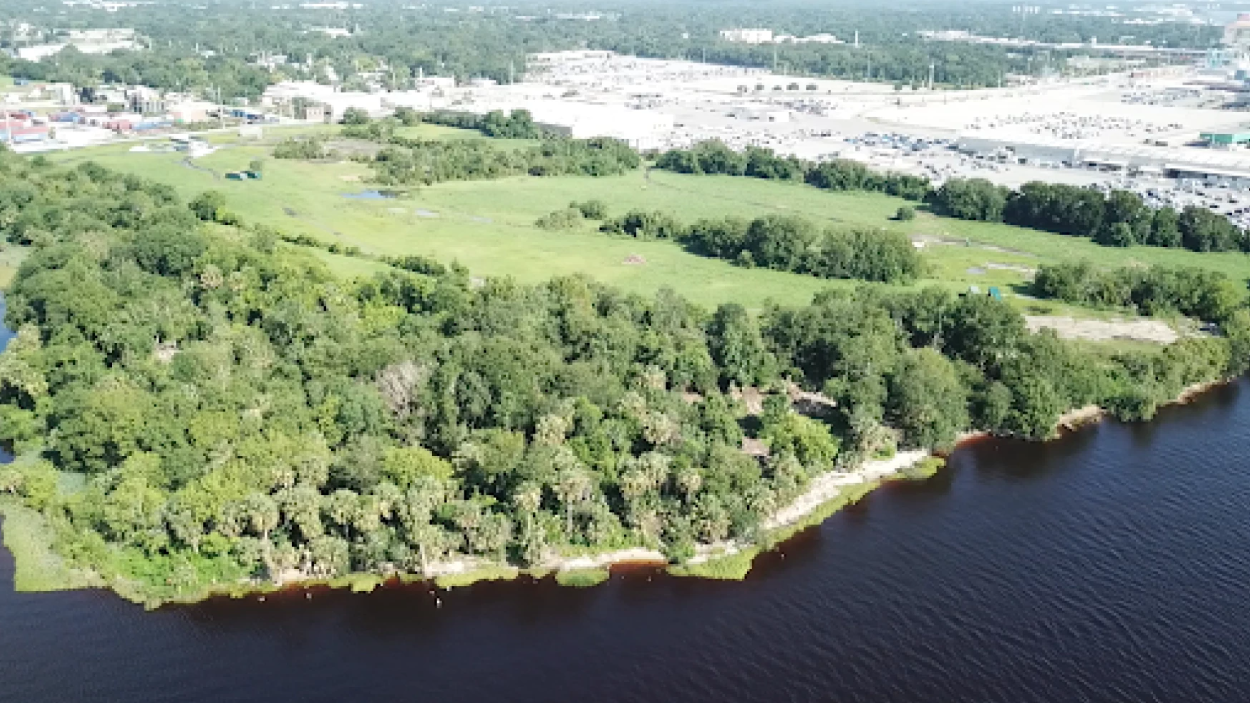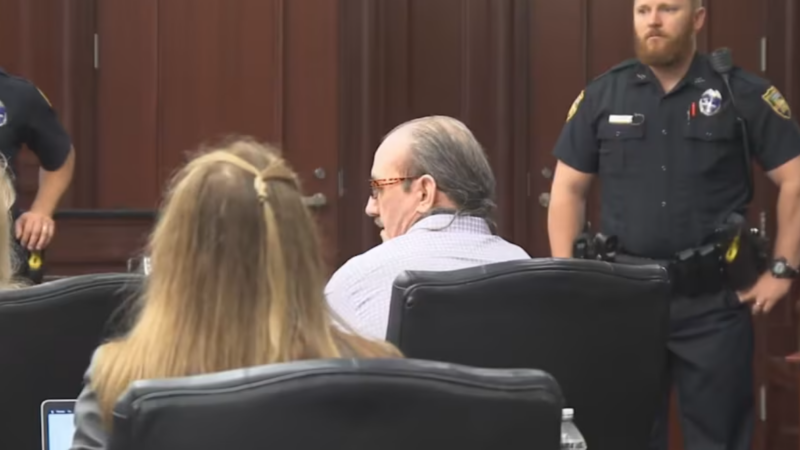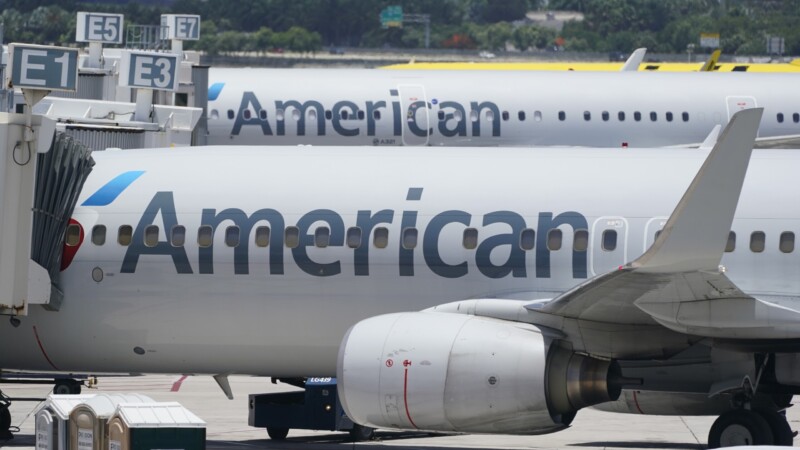Cleanup efforts on contaminated land along the St. Johns River in Jacksonville’s Eastside neighborhood are scheduled to take a major step forward this spring to rid the area of contaminated soil and water.
The 31 acres along Tallyrand Boulevard are known as the Kerr-McGee Superfund site. The area lies between the Jaxport property that’s leased to Southeast Toyota distributors and Deer Creek to the south.
Between 1893 and 1978, Kerr-McGee and several other companies used the land to manufacture, formulate, package and distribute fertilizers, pesticides and herbicides, leaving behind chemicals and metals in the soil, sediment and groundwater that could be dangerous for the community.
The next phase of cleanup will be the biggest in the process so far. Project manager Peter Cornais said the planning process to remedy the soil, sediment and groundwater contamination has been seven years in the making.
“So moving forward, what the community will see is a large-scale construction project on Tallyrand, between Talleyrand and the St Johns River, and we’re completing a soil, groundwater and sediment remedy to make sure that the contamination is cleaned up and protective of human health and the environment,” Cornais said.
Dealing with contaminated land near a residential area can be tricky, so measures will be taken to keep residents and workers safe, Cornais said. An air monitoring system is in place already, and monitors on the workers will let them know whether they are being overexposed to anything harmful.
“If we see anything in those dust monitors that indicate that we should stop work, we’ll stop work, correct the conditions and then move forward,” Cornais said.
If anyone has complaints or questions during the process, the best step is to contact Peter Cornais directly. His email is PC@g-etg.com, and his phone number is (904) 512-6739.
To fix the contaminated groundwater, crews will use a process that will essentially mix the soil with concrete and other materials that will eventually lead to clean groundwater, Cornais said. A system in place for the next 15 years will pump the groundwater in that area and treat it so it can come back up to clean water standards.
To fix the sediment contamination, workers will install a bulkhead along the St. Johns River to keep the sediments along the shoreline, and the area outside the bulkhead will be dredged afterward. The contaminated materials will either be disposed of properly or put along the bulkhead along with the other sediments so it stays out of the water.
To remedy the soil, the entire 31 acres will essentially be tarped over to prevent the harmful materials from becoming airborne or exposing people. Cornais said the capping process will take place in layers. First, workers will grate the contaminated soil, then a thick plastic layer will be put over the top of that, then more soil will be put over that and eventually grass and other vegetation will grow on the top layer.
Kerr-McGee and other companies that contaminated the land will pay for the $60 million project. Cleanup is scheduled to last two years.
The next phase will be to investigate the metals and chemicals in Deer Creek to determine whether anything needs to be done. That investigation is scheduled to start in April.
The Multistate Trust — a private, independent entity that owns and manages hundreds of contaminated, former Kerr-McGee sites across the country — owns the property in Jacksonville.
The land ultimately will be sold so it can be turned into an area to unload ships. That could happen as soon as the end of next year.
For more information about the site, go to jacksonville.greenfieldenvironmental.com.







